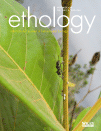 Highlights at Retraction Watch this week included a case of overly honest referencing and the story of how a medical resident flagged up a pseudoscientific study. Here’s what was happening elsewhere: Continue reading Weekend reads: Speed kills in publishing too; studying blank pages; apologies for the Rosetta Shirt
Highlights at Retraction Watch this week included a case of overly honest referencing and the story of how a medical resident flagged up a pseudoscientific study. Here’s what was happening elsewhere: Continue reading Weekend reads: Speed kills in publishing too; studying blank pages; apologies for the Rosetta Shirt
Year: 2014
Paper on circulating tumor cells taken out of circulation after lab error
 A group of researchers at the Guangdong Academy of Medical Sciences in Guangzhou, China have retracted a paper that came out of a clinical trial on transarterial chemoembolization, a targeted kind of chemotherapy.
A group of researchers at the Guangdong Academy of Medical Sciences in Guangzhou, China have retracted a paper that came out of a clinical trial on transarterial chemoembolization, a targeted kind of chemotherapy.
According to the notice, one of the authors mixed up the control samples with the clinical samples, and “could not recall which samples were in the wrong group.” The paper hasn’t yet been cited, according to Thomson Scientific’s Web of Knowledge.
Here’s the notice in Medical Oncology:
Continue reading Paper on circulating tumor cells taken out of circulation after lab error
Univ.: No misconduct, but “poor research practice” in mgt prof’s work now subject to 7 retractions

The Leadership Quarterly has retracted a trio of papers by Frederick Walumbwa, an “ethical leadership” guru at Florida International University, whose work has come under scrutiny for flawed methodology. And another journal has pulled one of his articles for similar reasons. That brings his count – as far as we can tell — to seven retractions and a mega-correction.
Meanwhile, Arizona State University, Walumbwa’s former employer, has found
that the preponderance of evidence does not support the charge of research misconduct by Dr. Walumbwa…
but that he engaged in “poor research practice.”
The bottom line, according to the Leadership Quarterly, which first announced problems with the articles in February:
Professor defends ripping off his student by insulting him in the media

University of Regina professor Shahid Azam is the kind of thesis advisor that gives prospective grad students nightmares.
According to the CBC, Azam lost a paper in Environmental Geotechnics for plagiarizing the work of his student, Arjun Paul, without bothering to cite it. Azam went on to trash the student’s ability to the CBC reporter.
He’s got two excuses, but we’re not sure which is more repugnant – that he wrote much of his student’s thesis for him and so deserves to steal it, or that plagiarism is standard practice in engineering publishing.
From the CBC: Continue reading Professor defends ripping off his student by insulting him in the media
Publisher sets high bar: Only articles “with lowest plagiarism” will be accepted
 Maybe you can be a little bit pregnant after all.
Maybe you can be a little bit pregnant after all.
At least, that’s what the editors of the Journal of Innovations in Pharmaceutical and Biological Sciences would have submitters believe.
In a rather ham-handed invitation to authors received by a friend of Retraction Watch, the open-access journal “cordially” solicits papers with a helpful illustrated timeline (our comments in parentheses): Continue reading Publisher sets high bar: Only articles “with lowest plagiarism” will be accepted
Lancet journal puts ICU paper on watch after authors acknowledge potentially fatal flaw
![]() Lancet Respiratory Medicine has issued an expression of concern for a meta-analysis on tracheostomy in the intensive care unit that they published earlier this year.
Lancet Respiratory Medicine has issued an expression of concern for a meta-analysis on tracheostomy in the intensive care unit that they published earlier this year.
The paper, “Effect of early versus late or no tracheostomy on mortality of critically ill patients receiving mechanical ventilation: a systematic review and meta-analysis“, came from a group at Harvard, Weill Cornell and the University of Athens. The authors purported to find that: Continue reading Lancet journal puts ICU paper on watch after authors acknowledge potentially fatal flaw
“Significant” copying forces retraction of sternotomy paper
 Interactive Cardiovascular and Thoracic Surgery has yanked a 2005 sternotomy paper by a group of researchers who plagiarized from an earlier article on the subject.
Interactive Cardiovascular and Thoracic Surgery has yanked a 2005 sternotomy paper by a group of researchers who plagiarized from an earlier article on the subject.
The article, “The complications of repeat median sternotomy in paediatrics: six-months follow-up of consecutive cases,” came from a team at Glenfield Hospital in Leicester, England, and has been cited eight times, according to Scopus.
Here’s the notice:
Continue reading “Significant” copying forces retraction of sternotomy paper
“Know how to recognize pseudoscience:” Reader reveals how fish oil paper came to be retracted

After our post yesterday on a fishy retraction from author Brian Peskin, a reader who alerted the journal to problems got in touch to give us the lowdown.
Ian Garber is in the last year of medical residency at the University of British Columbia. Here’s the story he told us via email: Continue reading “Know how to recognize pseudoscience:” Reader reveals how fish oil paper came to be retracted
Overly honest references: “Should we cite the crappy Gabor paper here?”
 We never cease to be amazed what can make it through peer review and several levels of editing.
We never cease to be amazed what can make it through peer review and several levels of editing.
In this case, some fish mating researchers wrote an, um, love note to their peers that failed to be edited out by any of the many eyes who must have at least glanced over it.
Here’s our favorite passage in “Variation in Melanism and Female Preference in Proximate but Ecologically Distinct Environments” (emphasis ours), published in Ethology:
Continue reading Overly honest references: “Should we cite the crappy Gabor paper here?”
